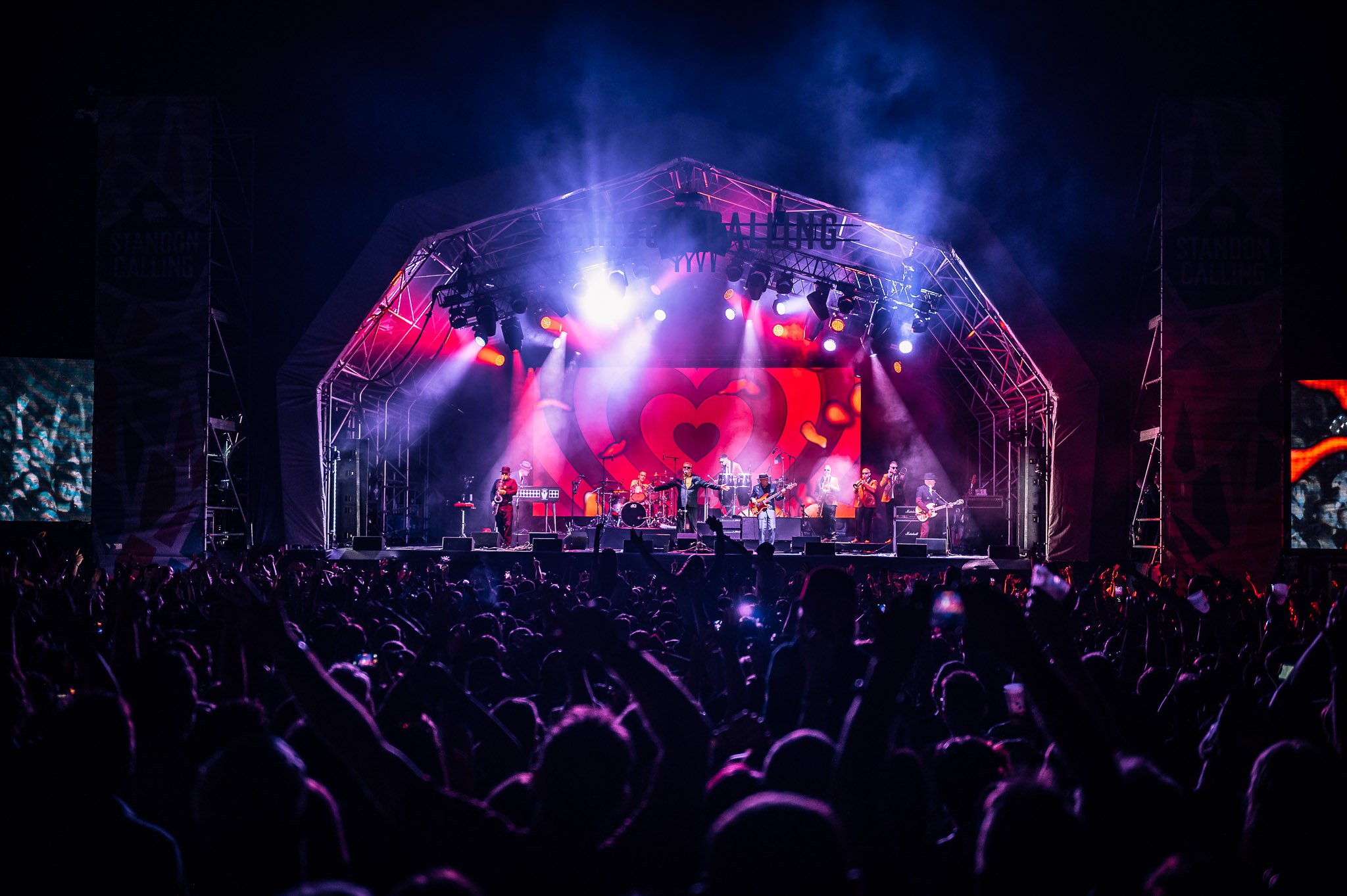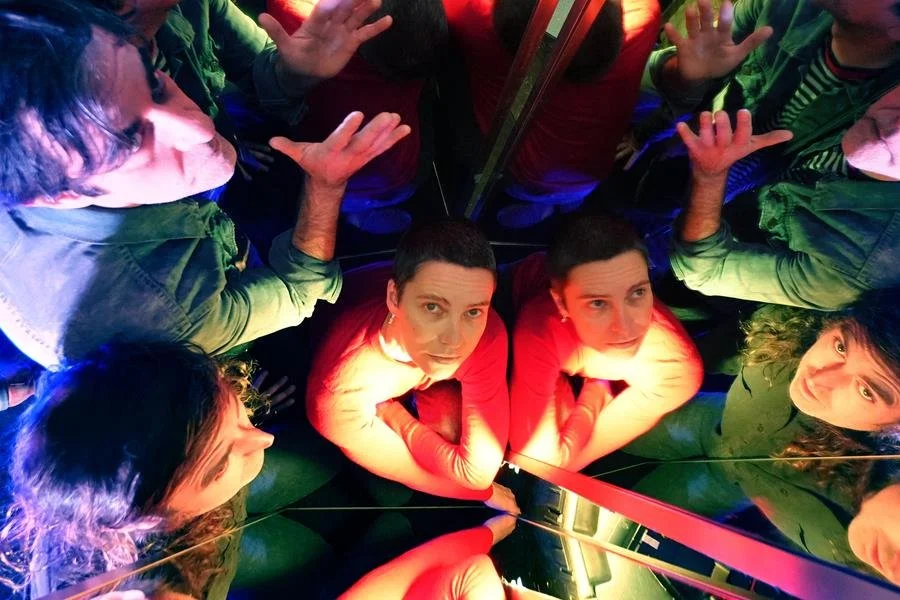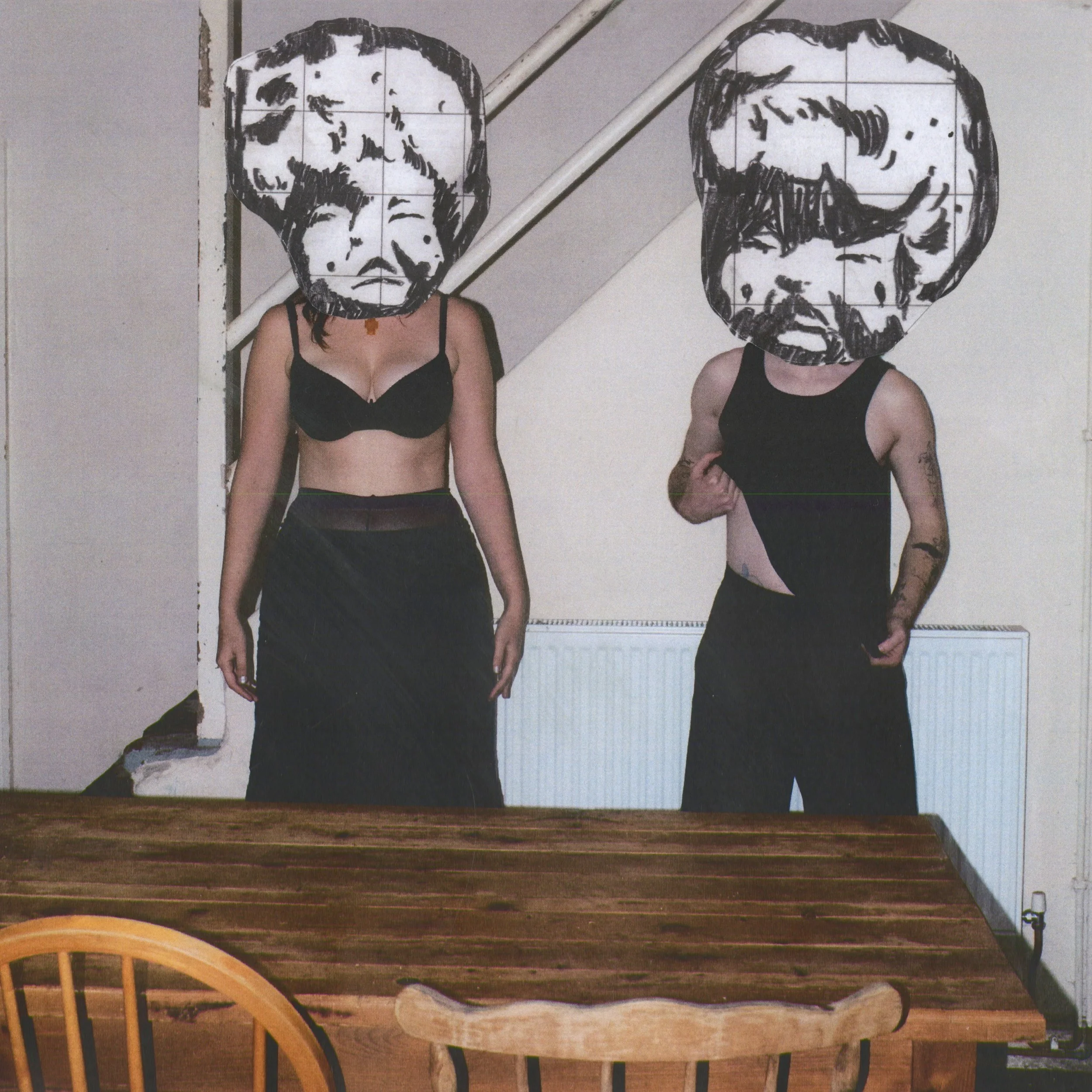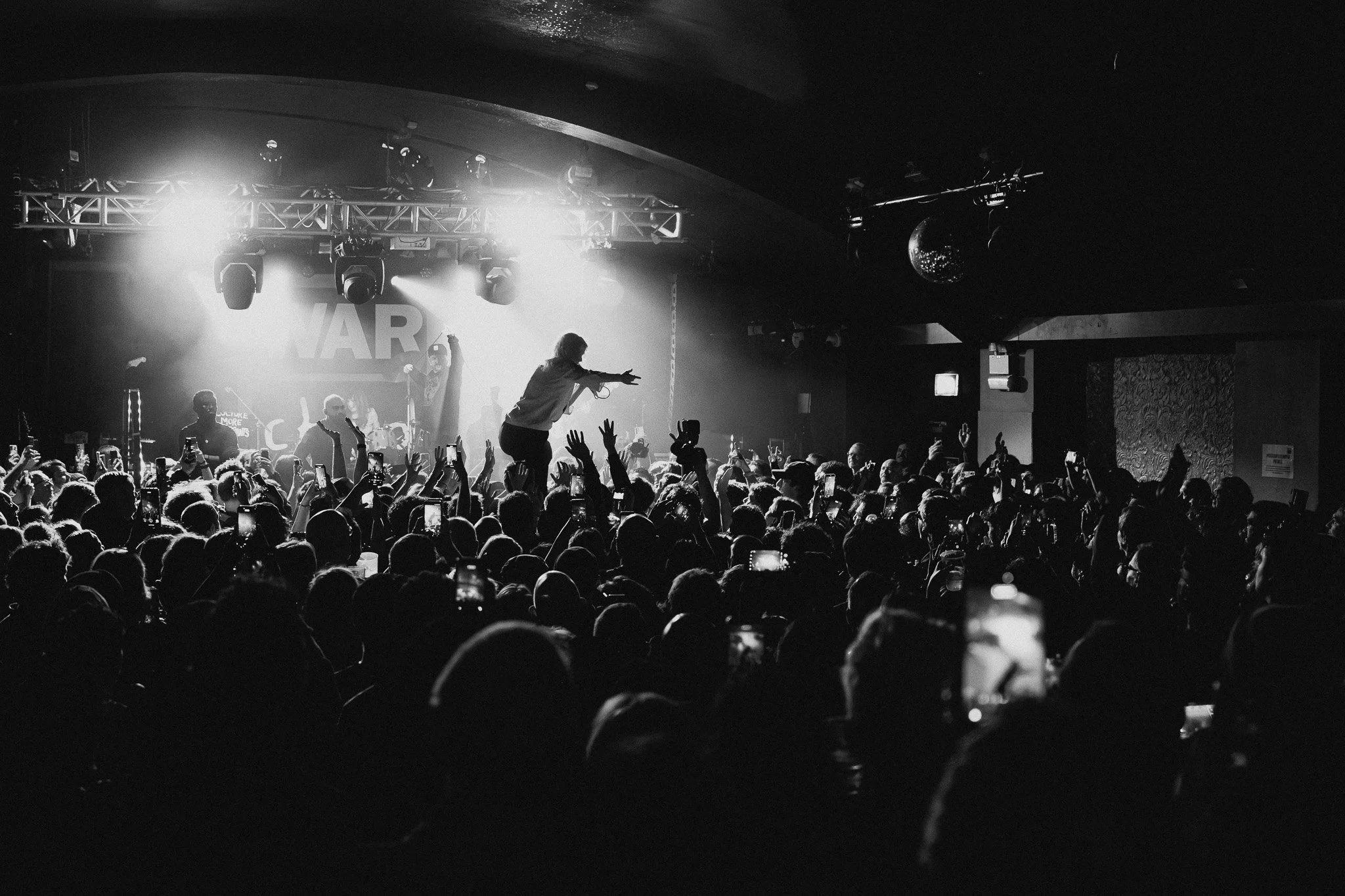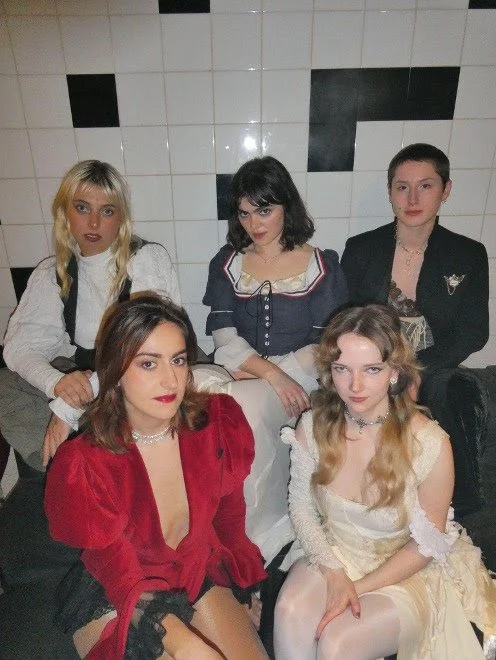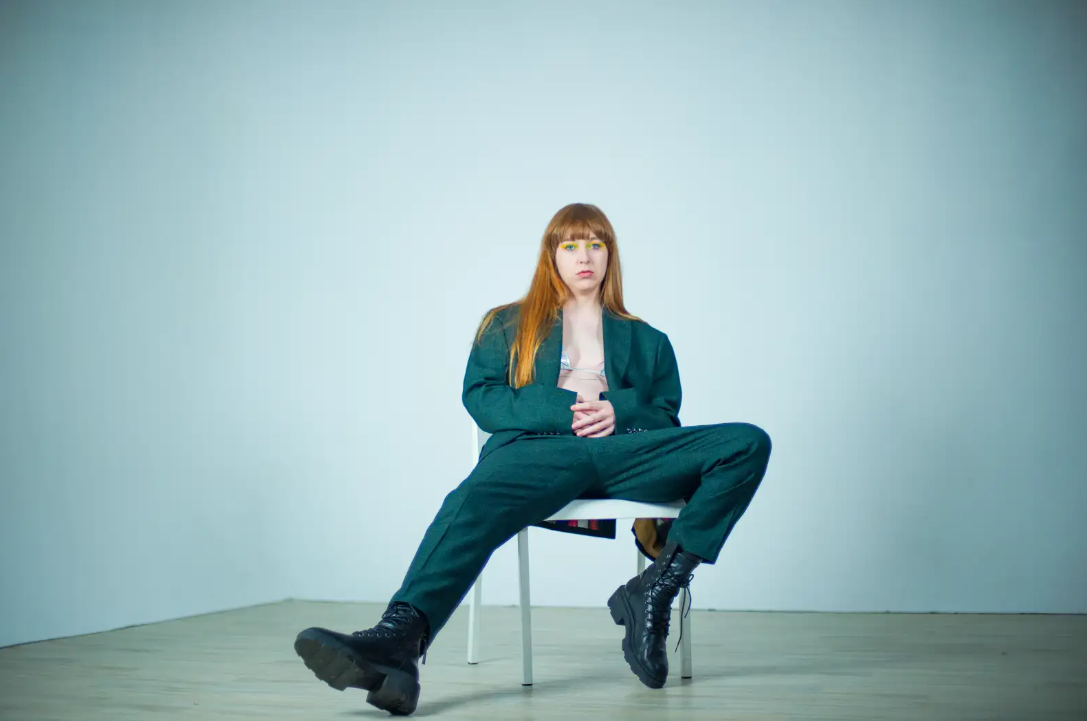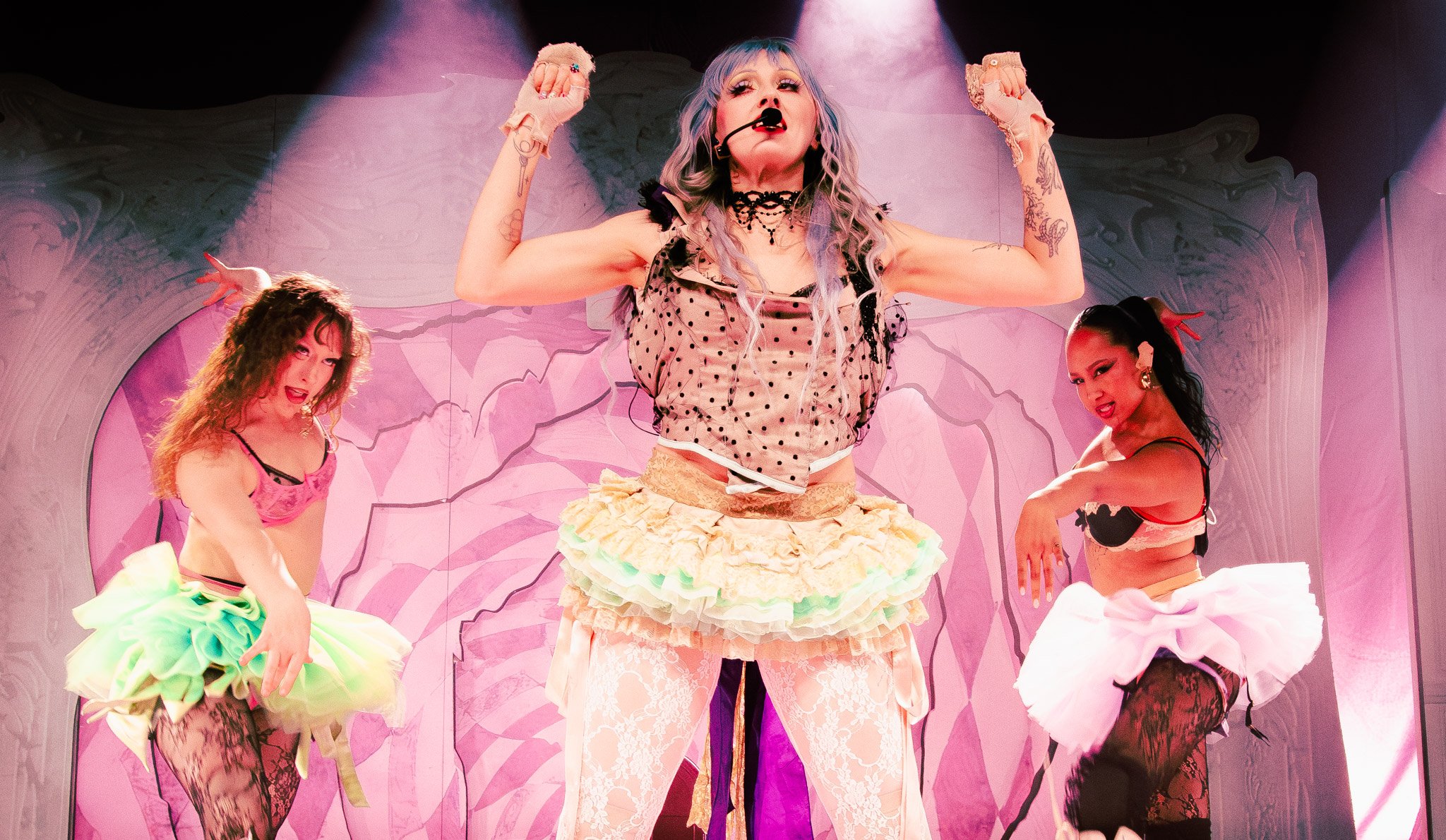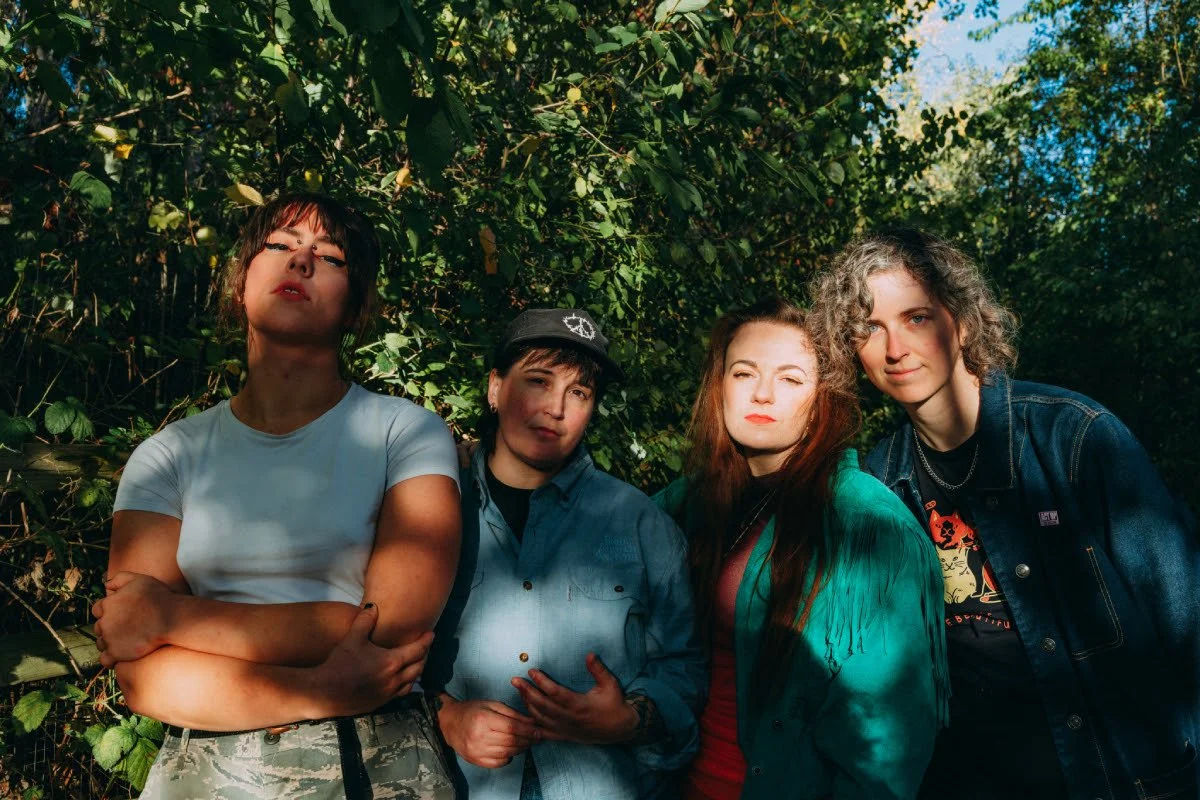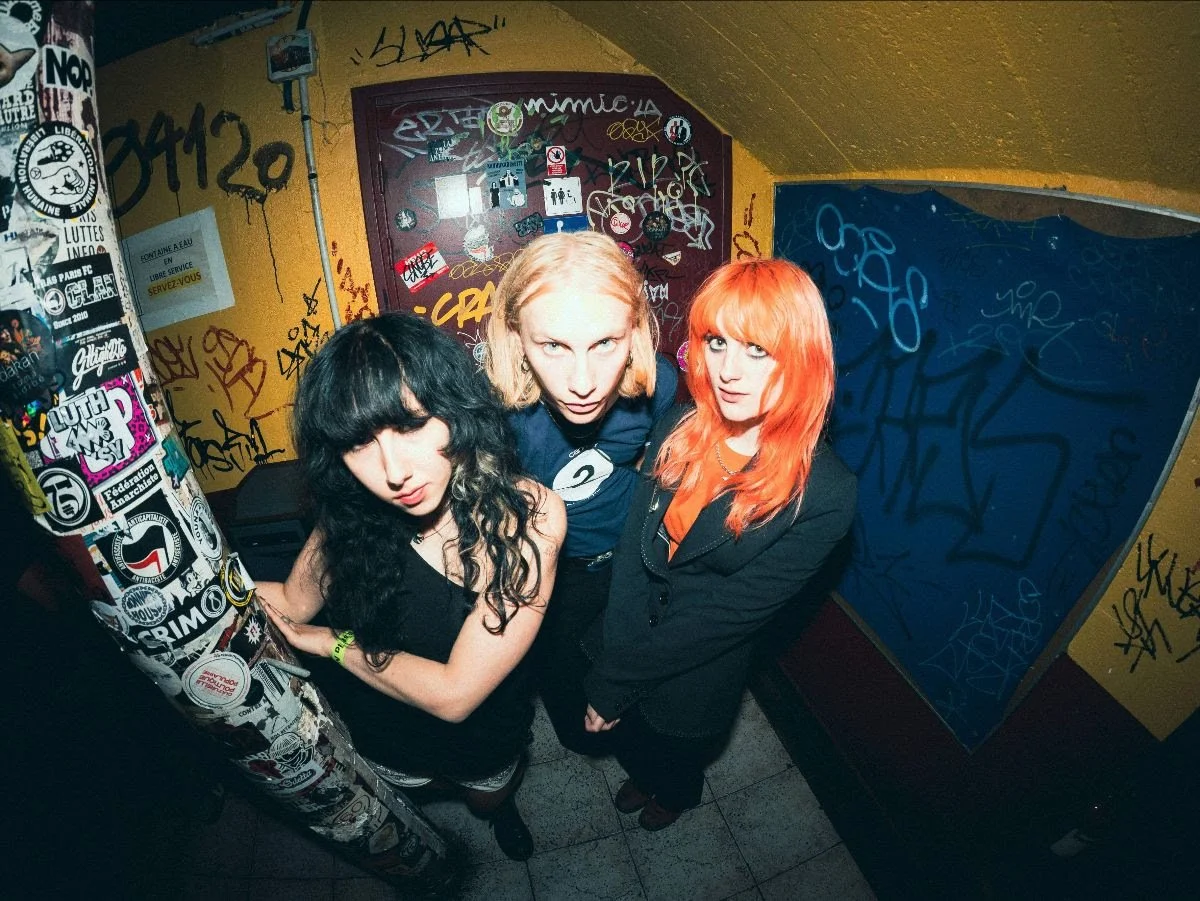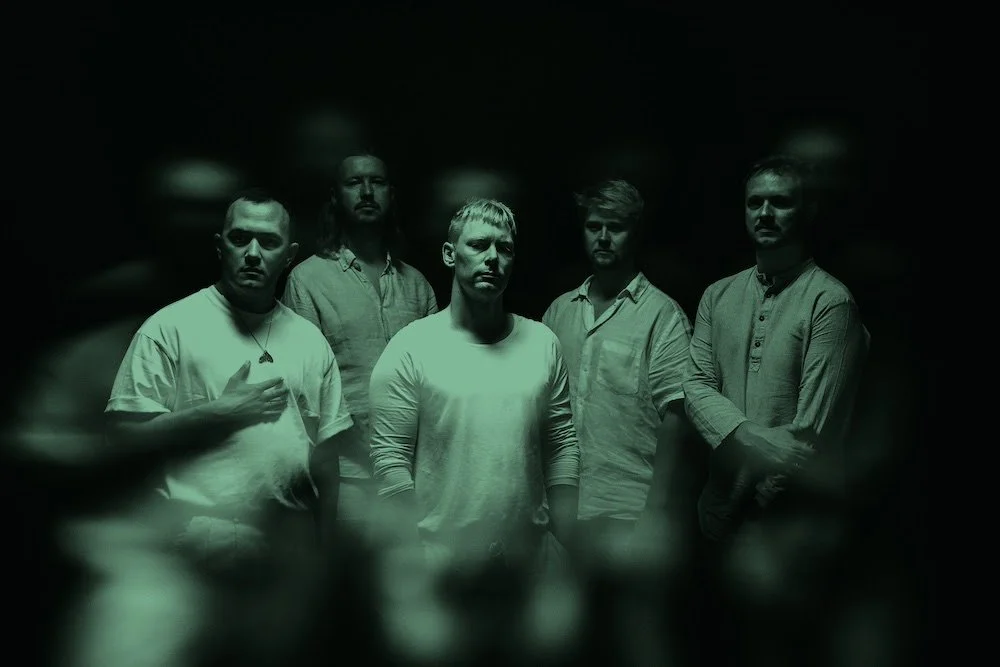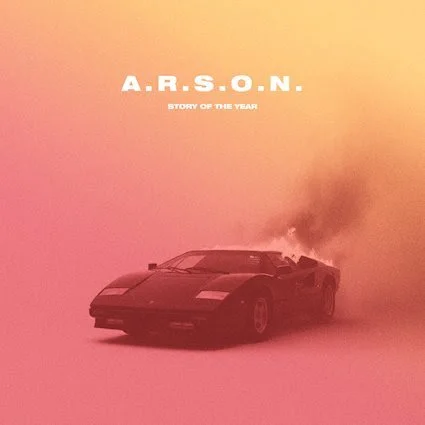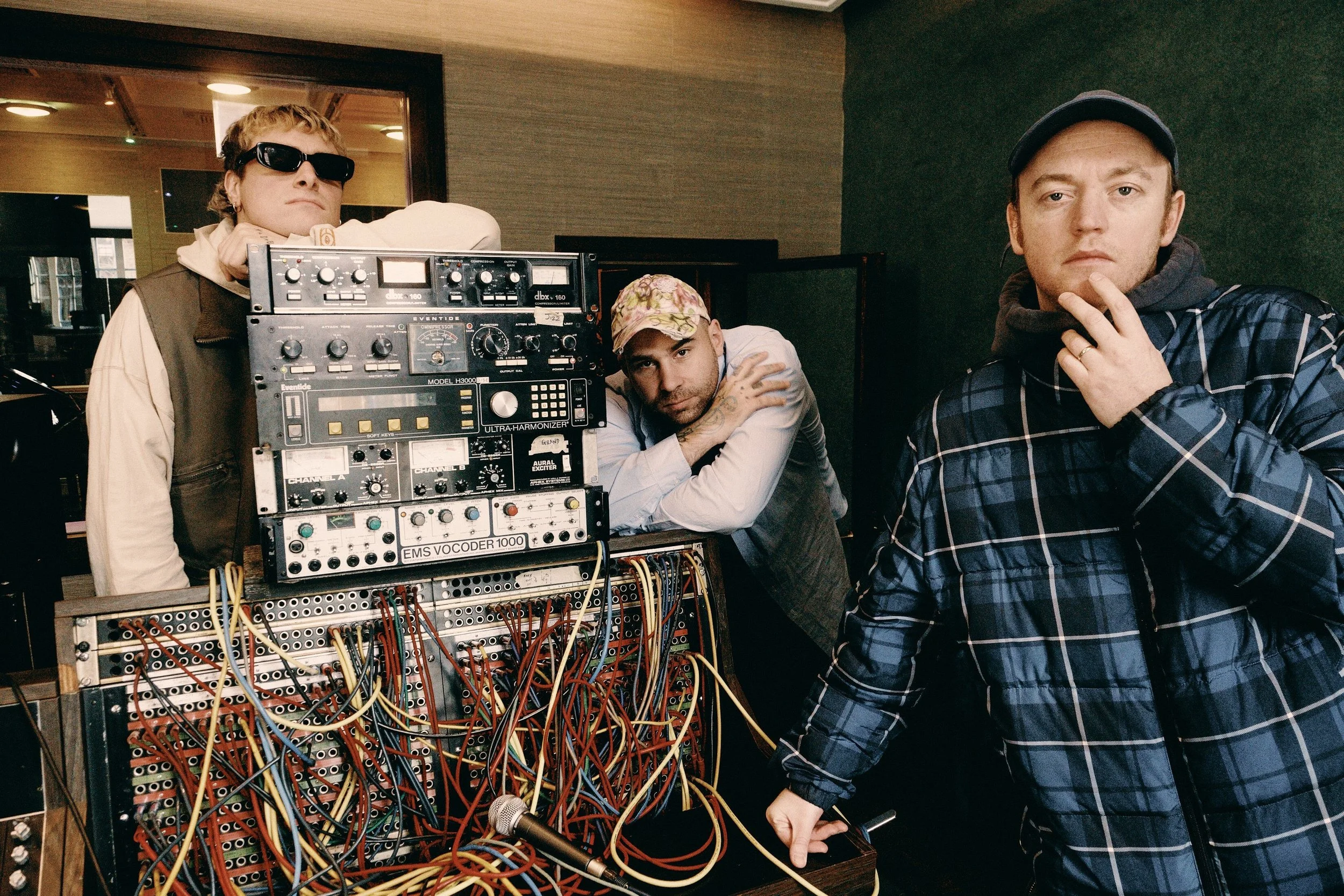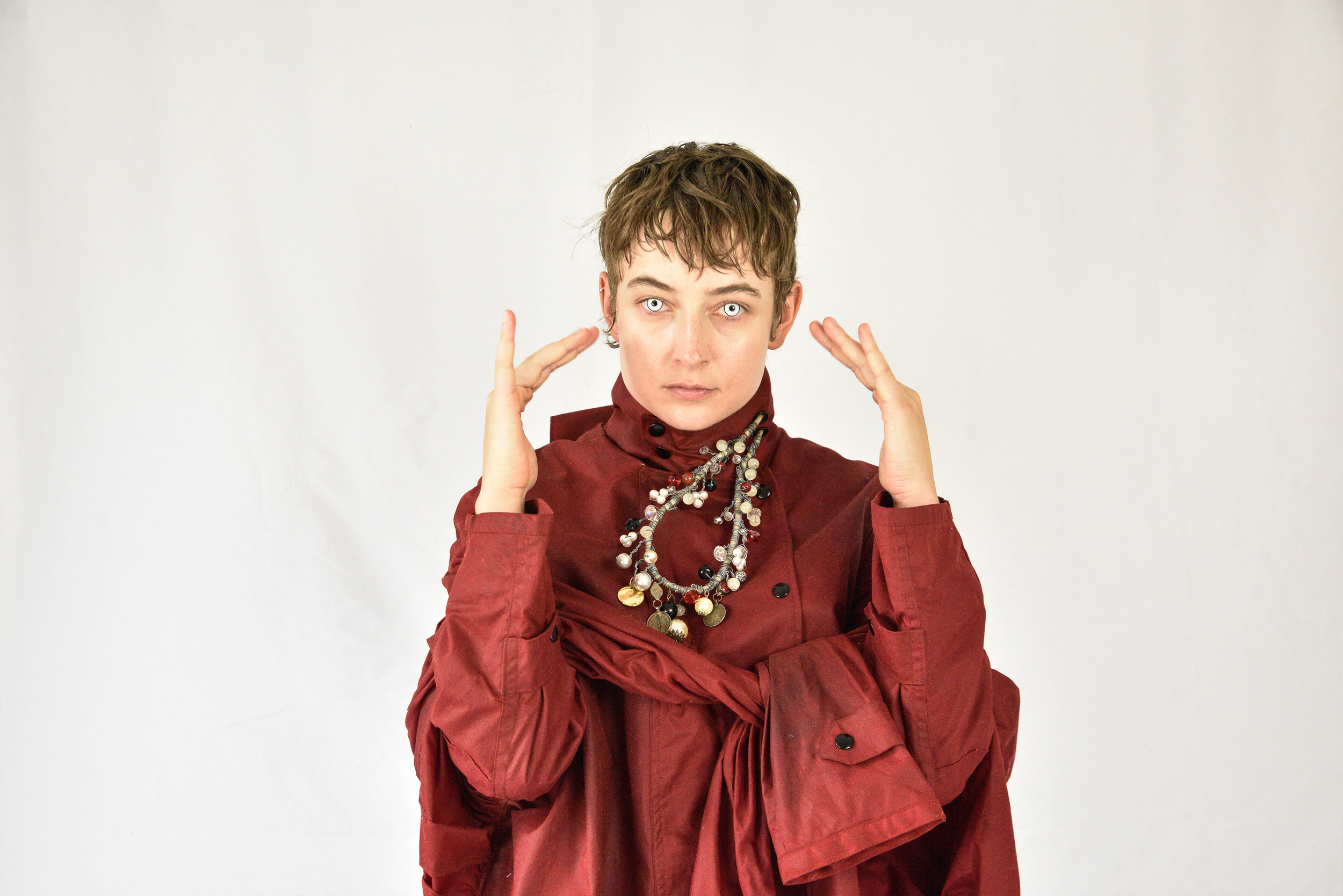Festival Review: Standon Calling 2022, Hertfordshire
What began in 2001 as a birthday barbecue for its founder has evolved into a celebrated annual sentiment of inclusivity, family, and diverse selections of music. With incredible performances from the likes of Madness, Billy Nomates, and Loyle Carner, Standon Calling did not disappoint.
Thursday 21st July
‘Don’t watch that, watch this…’ erupts from darkness, lifting a multi-generational crowd onto the balls of their feet. ‘This is the heavy, heavy monster sound, the nuttiest sound around…’; the many who had been waiting on tonight’s headline storm forward to get a glimpse of what’s about to happen. ‘So if you’ve come in off the street, and you’re beginning to feel the heat, well listen, buster, you better start to move your feet.’ The crowds are hysteric – it’s like there are visible fizzling molecules between each person. ‘To the rockinest, rocky-steady beat, of Madness. ONE STEP BEYOND!’ The boogying, jumping, and Madness shuffling breaks out as the sax man lets loose. Frontman, Suggs, sprints onto the stage to applause, bouncing around like a toddler. I’ve missed festivals.
Between the hits, Suggs rolls out anecdotes, which, in usual Madness-esque style, conjure genuinely insightful meanings about their songs or their songs’ subjects, all the while retaining their silliness and trademark mockery of humanity. For instance, Suggs precedes one track with a story about meeting Johnny Depp in a pub in Newcastle, just days after his victory over Amber Heard in court – as per some viral videos and photos, Depp actually was in Newcastle at this time. Suggs continues that he noticed Johnny was crying, and that he offered Suggs a pint. “What’s wrong, son?” Suggs asks. “My girl’s mad at me,” Johnny replies, recalled by Suggs, as the jangly pianos of ‘My Girl’ (whose eponymous chorus goes ‘my girl’s mad at me’) light up the stage, as well as the audience’s faces.
Each short interlude between performances, charged by Suggs’ ageless, boyish Cockney charisma, really emphasises the band’s interaction with quite dark themes about the anodyne of day-to-day British life, yet always, as with their songs, keeps that happy-go-lucky, mocking approach to these topics at the fore. It’s this all-encompassing philosophy that renders Madness generation agonistic, and illuminates the reason as to why people from about age 8 to 80 know the lyrics to every hit they play. Suggs is aware of the cruder jocularity of his lyrics and its potential clashing with younger family audiences, exclaiming after ‘House of Fun’ (an allegory for buying condoms from a chemist): ‘Parents, you can explain prophylactics a few years down the line – we made it as metaphorical as we could!’
In and amongst this excess of personality and observational genius, though, are a group of immensely talented and forward-thinking musicians, who, 40 years on, still bring the same energy and technical prowess to their renditions as they did back when they were young. Torchbearers of the ska sound, Madness incorporated elements of reggae, rock, pop, rockabilly, soul, funk, jazz, and spoken word, to name a few. This blend is felt particularly prominently in their final track, ‘It Must Be Love’, which is a sincerely beautiful moment. As fun and playful as Suggs and the band are, their delivery of this catchy, but artistically significant reggae fused rock-soul ballad, was a cry of love that lamented the lives and time lost during the pandemic. Suggs bellows the chorus, ‘it must be love, love, love!’, almost inaudible beneath the thousands of voices that joined him, followed by the emphatic two-tone hit that gives way to, ‘nothing more, nothing less, love is the best!’ He jumped as he sung, his arm in the air – a cheeky little boy in a grown man’s body, unable to contain all the love he’s feeling and sharing. I must admit I shed a tear. The song finishes and the crowd reciprocate the love, roaring with cheers; amidst this, Suggs, impersonating Lennon, mumbles, ‘it’s all you need, Paul.’
We rush over to Laundry Meadows, on our first of many visits, to catch the latter half of Craig Charles’ DJ set. My pre-existing awareness of Craig Charles is via his acting roles on shows Red Dwarf and notorious Mancunian soap Coronation Street, so I am unabashedly fascinated that his talents extend to mixing. His self-avowed adlib, ‘funk so thick you can’t catch your breath’ typifies his selections; a strong mixture of funk and soul classics grace the speakers, with an emphasis on quick breaks that give the disco-inspired dance-inducers a tempo that feels closer to house or techno than soul. Tracks mixed by Craig include ‘Do The Bus Stop’ by Fatback Band, ‘You Make Me Feel (Mighty Real)’ by Sylvestre, and ‘Lady - Hear Me Tonight’ by Modjo, always bled with some unique tribal breakbeat loop or funky acid bass; the vocal, ‘It’s like a jungle sometimes, it makes me wonder how I keep from going under’ from Grandmaster Flash and the Furious Five’s, ‘The Message’, cropped up multiple times, accenting the funky rhythms beneath it. A wicked end to the first night.
Friday 22nd July
After a coffee and a croissant in the depths of Standon’s hilly countryside, we dive into our first Friday act, English Teacher, who give the Laundry Meadow stage its first taste of grunge. A55 is the initial standout from the four-piece, the melancholic riff of which points to Joy Division were they to meet the modern psychedelic pop era. There’s even a touch of the Pretenders in their sound, yet any semi pop-inspired melodies are drowning in grunge and punk rock.
Jagged basslines wobble beneath plucked, crunchy guitars, and speedy hi hats match the lights, and above all, lead singer, Lily Fontaine, tows the blurred chasm between singing and spoken word. It’s indecipherable whether she’s doing either, or both; some syllables are sung and some are spoken, and naturally these vocal inflections lead to associations with post-punk. But like their contemporaries, such as Squid and Black Midi, English Teacher resent ‘getting put under this one general umbrella’ (The Line of Best Fit), and would likely appreciate their music being labelled under the ‘English Teacher’ genre, which, given their unique approach to alternative and spoken word, is apt.
As the set goes on, their performances even begin to draw from a jazz logic, exercising quick tempo changes, as well as movements between 3/4 and 4/4 time signatures (both of which are evidenced in ‘Mental Maths’); it’s a sophisticated and controlled, yet wild and disorientating affair. This juxtaposition continues into the lyrical themes, where a line is towed, like Madness, between seemingly random colloquial verse and curiously insightful meanings. The most poignant of these moments are those that embrace themselves as unreservedly British, such as, ‘I’ll buy you a pint – we’re leaving together, a bag of crisps for a starter, suddenly we’re in Ikea debating pots and pans’, which precedes the band diving uncompromisingly into a medley of tempos and tones. The eponymous English Teacher hold so much charm in their punky, self-deprecating, grimy, cold Englishness – their wallowing in its rawness is refreshing. Their final track, ‘RnB’, as well as being a unique and powerful piece of music, epitomises this: ‘I’ve been making you a tea before you know it’s what you need, tell me is it too sweet for you?’ As the track’s finale swells into a wall of noise, Lily grabs her can of Heineken from the floor and slides it violently up and down the neck of her guitar, her face contorted with a smile like a kid in a tuck shop.
Over at our first trip to DJ-centric stage, Electric Willows, we catch Feeling Gloomy, who spins an interesting mix of melancholic indie ballads, with tracks from The Smiths, the Cure, Joy Division, The Jam, and Human League to name but a few. With the majority of these acts being out of circuit, as well as a lack of, if any clubs or bars that play music as genre and mood consistent as this, Feeling Gloomy is a welcomed and appreciated addition to today’s line up.
Back at Laundry Meadows, Billy Nomates erupts onto the stage with nothing but herself and her laptop, on which her instrumentals are queued. They roll out one after another so quick that the audience barely have time to give their enthused cheers and applause before they’re thrown into the next electro punk-pop slam. Her tunes sound like they have been recorded by a band, perhaps session musicians, but the sheer gravity and oomph of her performance renders her bandless-ness irrelevant. Kicking off early with ‘Petrol Fumes’, Billy darts around the stage, her dancing reminiscent of a less jerky, more rhythmic, but still wild Ian Curtis; she doesn’t once stop moving, yet never sounds out of breath, and bawls every word with an abrasive, phonetic defiance to match that of her subject matter. She satirises our bleak reality, a modern spiritual successor to the punk movement, and is unabashed about how, at this point, she expects nothing less from an amoral, material world: ‘Oh yeah, the walls can fall down, there’s nothing in this world I already miss, but I believe in you, you’re my petrol fumes.’
Billy’s spoken word singing is palpably significant to her – she yells as though engaging in a feverish sermon, never sounding preachy or self-pitying, rather resentful and ashamed of herself and of others. Serrated electronic leads and swirly, new-wave-esque synths move beneath her calls: ‘I don’t believe in healing anymore… I just go round and round’ from ‘Supermarket Sweep’, and ‘death don’t turn me on like it used to’ from an unreleased song due on her upcoming album – the latter track comes thick with 909 drums and chest rumbling bass, grungey like its lyrics.
The track, ‘Heels’, is a standout of the set, its distinct synth-wave opening harking to Human League, notably their 1981 joint, ‘The Sound Of The Crowd’. Like this track, ‘Heels’ applied boom-y, sub-bass hits that buzz the pockets of space between highly compressed, snappy, quantised drums that keep us moving forward. Billy’s lyrics, ‘Lift your boots, tilt your hat… I can’t die looking like that’, are spat and roared, her plosive emphasis matching the aforementioned pump of the instrumental. Like English Teacher, she finds a beautiful balance between wildness and controlled musicianship, hitting that sweet spot where she loses herself in the music.
She ends her set on ‘Call in Sick’, which, in hindsight, was my favourite moment of Standon Calling. It’s an impossibly resonant anthem of scathing toward 9-5 culture’s futility and a satirical hit at the overdramatic, apocalypse-level stigma that not going into work parades. But most importantly, it’s about the lengths she’s willing to go to avoid going into work. She yells, ‘I’ve been up all night with one of the worst cases this town has ever seen, and if I come in Debbie, if I come in Debbie, I’m gonna take down the whole team, and then I’ll have blood on my hands!’ Her phatic approach to writing, and use of the common name ‘Debbie’, colours the track with genuine wit with which she uses to attack these prototypes of office life – I can’t stop smiling, and throughout the performance, in reaction to lines of such resonance, the crowd burst into cheers; Billy creates a wonderful communal anger, and compels us to celebrate our mutual angst. In the second verse, she asks, extra rowdily into the mic, ‘and who goes in on a Friday? C’mon, who goes in on a Friday?!’, to which the crowd, all here at this festival on a Friday afternoon, erupts into cheers, applause, and dance. This job that means nothing to Billy or to anyone else for that matter, that is deprived of meaning other than for the function of not dying, is pure animalism, and she’s angry, and she’s not going into work if it’s the last thing she does. The track ends to howls of praise, everyone on their feet, clapping, desperate for another. Billy’s face beams as she bows – she doesn’t seem to want to leave the stage either, and takes in every last bit of applause before taking her curtain call.
At the main stage, a reunited Sugababes line up to perform the hits amongst some more recent, lockdown-penned songs. They open with noughties megahit, ‘Push The Button’, with the help of most of the crowd throughout.
They talk to the crowd at several intervals about self-love and pride, especially regarding the strength we showed going through the pandemic and coming out the other side. Their performance of ‘Stronger’ is a particular ode to this sentiment: ‘and finally I’m getting stronger’. As with the rest of their set, the Sugababes’ singing is powerful, harmonious, and accomplished.
Several hits ensue, like ‘Round Round’, DJ Spoony collaboration, ‘Flowers’, and ‘Bruised’, all of which feature succinct melodies and production faithful to their studio recordings. They end on ‘About You Now’, the crunchy introductory drums of which draw roars from the crowd. The trio are all stood together, arms around one another, as they sing the final harmony to this renowned and beloved chart stomper, leaving this sense of a true feeling of togetherness - the group’s rocky history feels far in the past.
Annie Mac brings her impeccable taste and mixing ability to the Electric Willows stage for an hour and a half set that frankly could’ve gone on all night. Hard minimal techno pour through speakers sat beneath overhanging trees, lit in purple, yellow and blue, while screens either side of the stage display Warhol-like pop art visuals that marry up with her sound perfectly. In and amongst the techno are inflections of acid bass, psychedelia, alto sax’s, and soul vocal samples, such as Rufus’ ‘Tell Me Something Good’. The mixing is seamless, and Annie Mac’s sixth sense for crowd-gauging is at the forefront of her performance tonight.
Saturday 23rd July
Back at the ever-intriguing Laundry Meadows stage, UK rapper Jeshi steps out into the sun. Having seen him live twice before, and followed his career since 2017, I’m wary that this family crowd, sat around suffering the blazing sun, might not be his target demographic. Jeshi wasn’t put off though, and after his introduction, ’Killing Me Slowly’, politely asked if people wouldn’t mind standing up. Seconds later, people were up on their feet, crowding round the stage for his cult hit, ‘Sick’; the song’s chorus is an ode to the cruel plights of ill fate, and is evidence of yet another English artist at Standon Calling recounting the taciturn reality of British life. He raps passionately, ‘sick of late nights, sick of tryna sleep close the blinds from the light, sick of seeing colours every time I close my eyes, sick of things going wrong and never going right, why they never going right?’ After this immense performance of his debut album’s first single, a few more of gathered round the stage, which he thanks us for, grinning cheekily: ‘Thank you for getting up, my legs hurt too.’
‘Generation’ – also from his album, Universal Credit – is a continuation of his downtrodden cynicism, yet there is a certain empowerment he exudes in rapping so fearlessly about his and his generation’s demise. Between songs he engages with the crowd, chatting to us all as if it’s just you and him conversing over a pint; after a particularly explicit song, he admits, ‘my girlfriend told me I shouldn’t swear, but I’ve got a potty mouth what can I say.’ His girlfriend, respected fashion stylist in the London scene, Ellie, laughs and gives him a knowing look from the crowd… in his next song he shortens a few words down to ‘F’.
Jeshi runs through a few more tracks from his album, ‘Two Mums’, the mad catchy ‘Protein’, and ‘National Lottery’, the latter of which contained profound lyrics that I think sum up Jeshi’s style. The bar, ‘animals, lost life’s manual, pool of tears doing cannonballs’, expresses the brutal randomness of luck as Jeshi sees it, and offers an empathetic shoulder to any of us who just don’t know when the next happy day is coming.
He ends his set on ‘3210’, which draws as much from dance and electronic as it does from hip-hop. Amidst the applause, he sincerely thanks the crowd and seems surprised by how much he enjoyed himself. He then recalls being driven over to the stage on a buggy and jokingly reveals his temptation to call his Mum to tell her he made it. He tells us to go enjoy some pie, or rather, ‘some extortionately priced pie!’ It’s not a festival if the pies don’t cost a tenner.
Tonight’s headliner is celebrated UK philanthropist, chef, and hip-hop artist, Loyle Carner. Carner’s best friend and frequent collaborator, Rebel Kleff, takes the stage alone for the first ten minutes, spinning the old school boom-bap and funk that laid the foundation of inspiration for Kleff’s beats and Loyle’s rapping. He’s spinning real vinyl, and frankly I’d be satisfied with Kleff’s act for the next hour – his selection is faultless.
He mixes in a new track, and at first people don’t entirely catch on, until Loyle’s voice appears from backstage: ‘Peace, peace, peace, from the West to the East’. As Madlib’s thick, crackly soul instrumental kicks in, Loyle runs onto the stage, jumping onto the beat and riding it as effortlessly as he does on the studio version of ‘Yesterday’. It really is a treat to hear Madlib’s beats on a large sound system – his basslines are so dynamic and expertly compressed, the monitors actually growl. Our luck doesn’t end there though, as Loyle introduces his next song as a new one, ‘Madlib on production’; again, the bassline crunches and the completely quantised drums have that breakbeat swing that the Beat Konducta does so well. The song is about Loyle’s feelings of displacement as a man with a white mother and a black father, captured beautifully by the final vocal sample that makes note of ‘Ebony and Ivory’ (McCartney and Wonder), ‘mix the black key with the white key’. It’s a sentence that lasts infinitely beyond the song’s finale.
Later in the set, Loyle addresses this dissolution of identity he suffers from not knowing where he belongs in the song ‘Looking Back’, which is more of an unsung gem from his sophomore album, ‘Not Waving, But Drowning.’ The lyric, ‘told me I’m from Ghana but really it’s Guyana’ punctuates the feeling of disorientation he feels, but is accompanied by red, yellow, and green lights, showing homage to his heritage.
His mindfulness of visual element of the set comes across in the beautiful abstract canvas of oranges, greens, blues, and whites that sits behind him for the show’s entirety. I thought it was an impressive piece when I noticed it early in the show, yet later on, he reveals that he now has a baby son, and that it was painted by him; the Carner eye for art is vein deep. He dedicates his next song, ‘Ottolenghi’, to his son, and brings out Jordan Rakei for the chorus, whose voice is somehow as good live as in the recording. Rakei stays for ‘Loose Ends’, doing justice to the iconic vocals Jorja Smith contributes to the studio recording.
For me, the set highlight is Loyle’s latest single, ‘Hate’, an almost punky track, where Loyle spits his anger about the world over a pumping, swinging breakbeat loop. The track ends to a sea of applause, which Loyle responds to directly: ‘I was scared to put this one out because it’s really how I feel, so thank you.’ If music achieves nothing else, it should at least free you of your weight somehow, whether as the creator or listener, and I think ‘Hate’ does both.
Sunday 24th July
Olivia Dean kicks off the final day at the main stage, where a couple of hundred gather round, braving the searing heat to watch her perform. Her set is a poignant commentary on relationships, their highs, lows, and all in between. She exhibits a genuinely profound understanding of how these relationships have shaped her and is an extraordinarily emotionally intelligent artist. From the aching spiritual distance she feels at the hands of geographic distance in ‘Echo’, to the feeling of being completely in sync with someone one day, and feeling estranged from them the next (‘your love don’t come with instructions’) in ‘Password Change’.
Her soulful summery outfit and the symmetrical jewels that bling out her canines reflect exactly the soul she puts into her music. Each track is made up of neo-soul tropes like smooth, Rhodes chords, bouncy swung basslines and cool, lazy drum patterns that draw from the likes of Erykah Badu and Jill Scott. In ‘Cross My Mind’, she sings about someone she can’t stop thinking about: ‘I love it when you cross my mind’, with airy percussion and empathic trumpets phrasing harmoniously in the backdrop. My favourite lyric of the set, which sits just slightly above so many others, features in ‘Float’, a song Olivia says is about being present; its chorus simply goes, ‘can we just float?’
Back at the main stage, the heat persists despite the sun’s departure. So, the Earth, Wind, and Fire Experience take its place, gracing the stage with endless smiles, dancing, and love.
They open with ‘Serpentine Fire’ and the slappy, funky bass for which they are so revered, jumping between octaves from beat to beat. As the trumpet player launches into solo, the entire band are dancing to his rhythm, smiling on like proud parents as he struts his stuff. It feels like we are watching a group of friends jamming because they love music and they love each other, which is a pleasure. This solo leads us straight into a swingy rendition of ‘Got To Get You Into My Life’, originally by The Beatles, which is almost unrecognisable unless you’re paying attention to the lyrics. Brass fills the sound, and the stage lights beam against the disco ball as the lead singer croons that serotonin-inducing chorus, spilling a spinning rainbow of colour onto the band and the crowd alike. The following songs are a medley of sorts, with no gaps between each song – a perpetual disco party.
The group end on worldwide disco-soul classics, ‘September’ and ‘Let’s Groove Tonight’, throughout which not one person can be seen not dancing. Not even the sturdiest of limbs are immune to the boogie wrath of these two anthems.
Next are Sunday’s headliners, Primal Scream, whose best moments, other than classic tunes, ‘Rocks’, and ‘Movin’ On Up’, are their exploration and re-imagining of genres outside of their rock roots. The disco inspired basslines and drum patterns that fit so nicely alongside the rock-heralding, distorted guitar riffs take an interesting direction. It reminds me of Dave Grohl’s (Nirvana drummer) famous conversation with multi-talented artist, Pharrell, wherein Dave admits to stealing from 80’s disco throughout Nirvana’s quintessential 90’s grunge album, ‘Nevermind’.
Some tracks also feature heavy soul influences, with trumpets, piano glides, organs, watery, bubbling synths, and gospel-like choir vocals all amalgamating into one complex but still uniquely rock-driven sound. The track ‘Come Together’ features this heavily, and is quite self-aware in its genre blending, with lead vocalist, Bobby Gillespie singing, ‘come together as one.’
Finally, we arrive at Electric Willows, where Grandmaster Flash brings us home to the festival’s conclusion. He starts by introducing the crowd to his method, and his role in the conception of hip-hop, followed by his innovative ‘quick mix theory’, which he demonstrates live via a shot of his decks, displayed on the screens either side of him.
He then spends some time paying tribute to his friends that have passed. J Dilla, Nate Dogg, Biggie, Prodigy, Juice WRLD, and Tupac are a few of the many names that appeared alongside their most famous tracks. It’s an important element of the Grandmaster’s set, and the crowd showed their respect for the honorary celebration of these beloved genre pioneers, gone far too soon.
Next, he takes us on a journey through New York, mixing in tracks from artists of each of the boroughs as they appear on the screen, which, again, was a unique, educational, and entertaining approach to a DJ set that I personally have never before witnessed.
To conclude, he lets his own hits ‘The Message’ and ‘White Lines’ play out for an audience that have anticipated these tracks eagerly since the set’s beginning, and thus express their catharsis through some intense boogying when they eventually drop.
I would recommend Standon Calling to any demographic, and am convinced they would find something for them. From pop, to punk, to grunge, to rap, to disco, all tastes of music are represented by every decade since popular culture was born.
Photography provided by Standon Calling
Words by George Saxon

